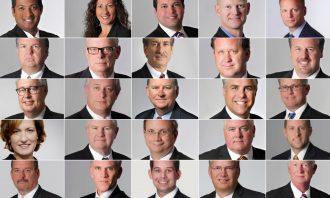
September 14, 2018
Bryan Wheelock Discusses Scandalous Versus Disparaging Trademarks with Bloomberg Law
St. Louis IP attorney Bryan Wheelock spoke to Bloomberg Law about the U.S. Patent and Trademark Office’s new plea to the Supreme Court to preserve its right to deny trademark registrations based on “scandalous” and “immoral” grounds.
The USPTO previously lost its authority to deny trademarks on “disparaging” grounds when the Supreme Court decided in favor of rock band The Slants in 2017. Now, Erik Brunetti is bringing the case for his FUCT fashion line to the high court and the USPTO is urging a line to be drawn.
The key to the case is the First Amendment and whether the differences between “disparaging” trademarks — which The Slants’ mark was able to circumvent — and “scandalous” and “immoral” marks — which FUCT is hoping to get around — will even matter to Free Speech. If there is no substantial difference, then Brunetti’s mark should be granted.
Similarly, if the Supreme Court refuses to hear the case, or if it affirms the Federal Circuit’s ruling that said banning scandalous trademarks is unconstitutional, then the USPTO will lose its ability to stop all offensive marks.
A question for the Supreme Court will be if the Lanham Act, which is the basis of U.S. trademark law and contains the descriptions of “scandalous” and “immoral” marks, holds up in this day and age. Some attorneys and business owners suggest that those descriptions need updating.
Another key issue resides in the fact that trademarks are often granted or rejected on an examiner-by-examiner basis. This can lead to inconsistencies in the law.
Others cite that the Supreme Court overturned the ban on The Slants because it discriminated against a viewpoint, but its written decision suggests it is not in the position to regulate morality regardless of viewpoint.
Wheelock raises the point that trademarks are not the only avenue to Free Speech, and while he harkens for a more gentile time, he agrees that if the courts “can’t craft a bright-line that everyone can agree on, then there shouldn’t be a rule.”
…
